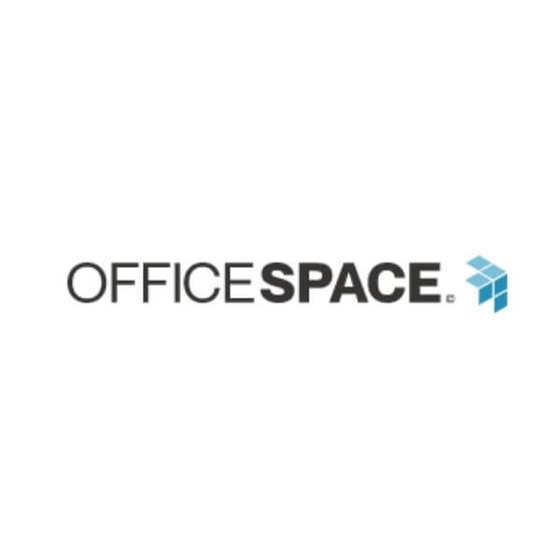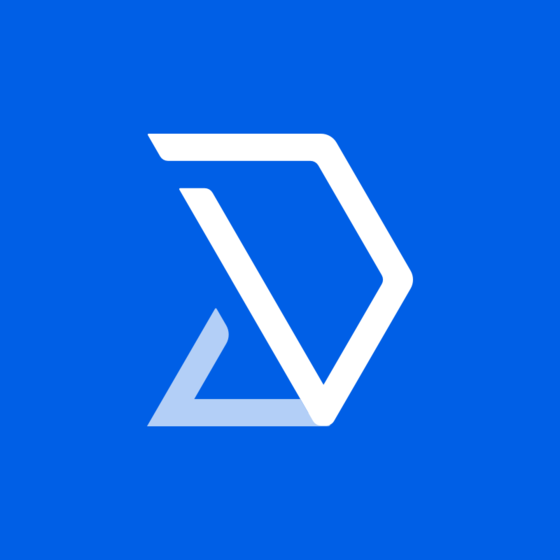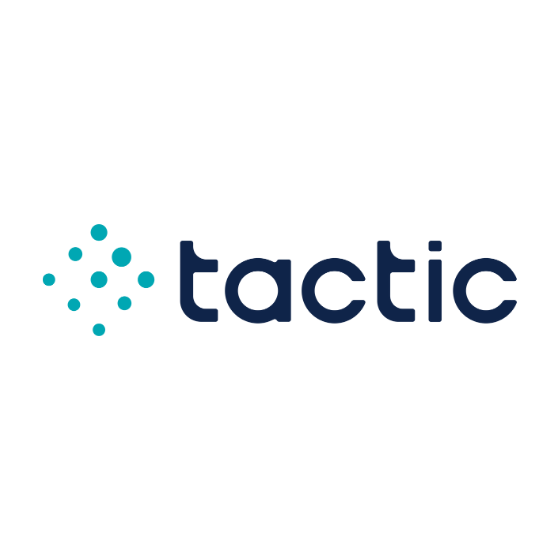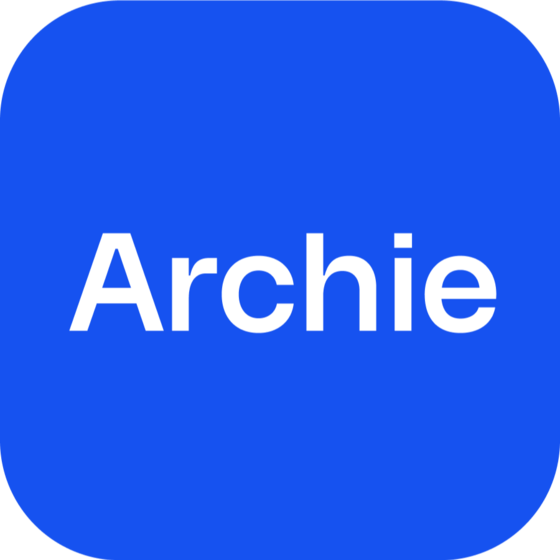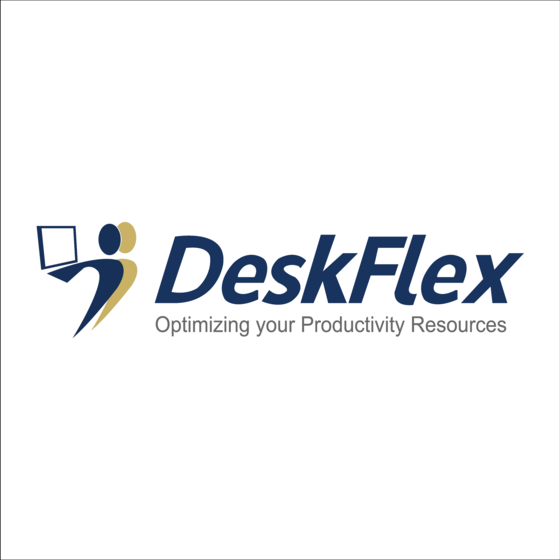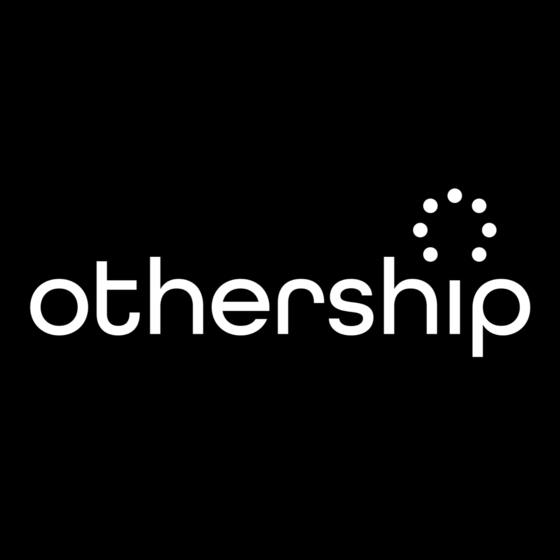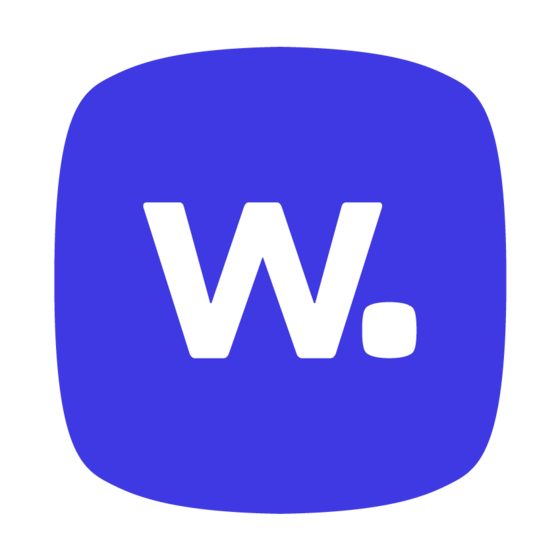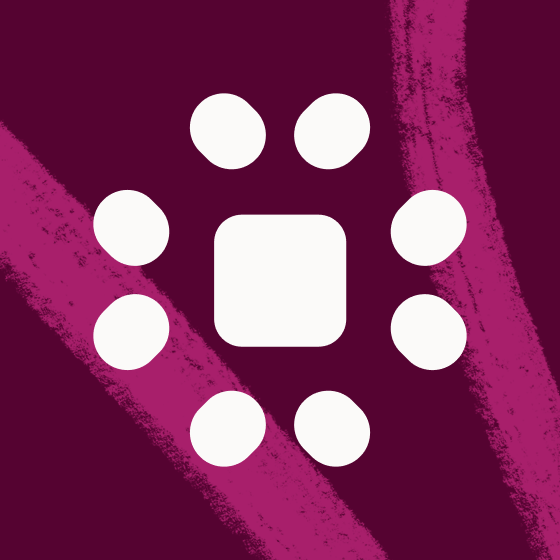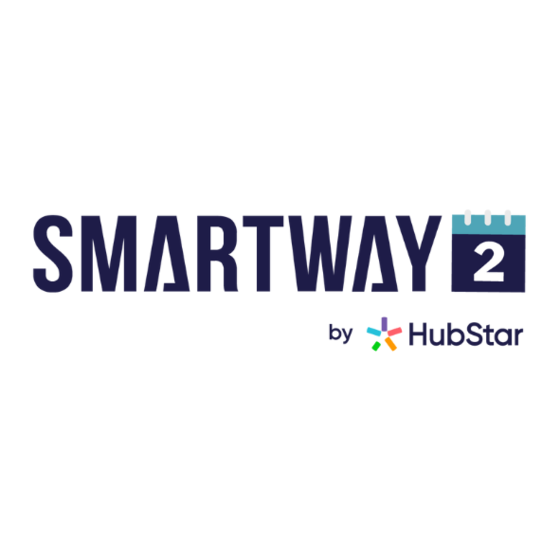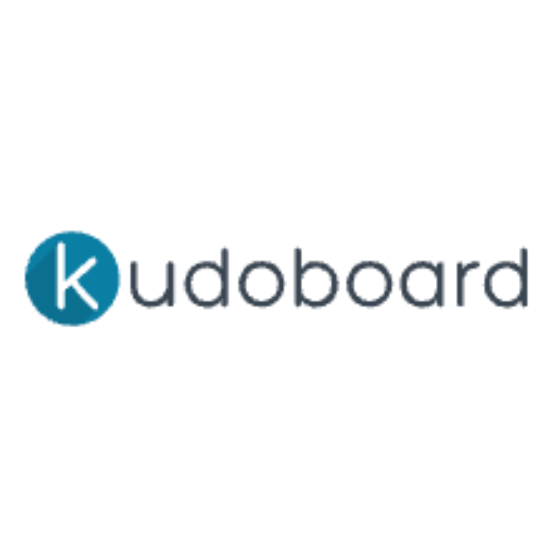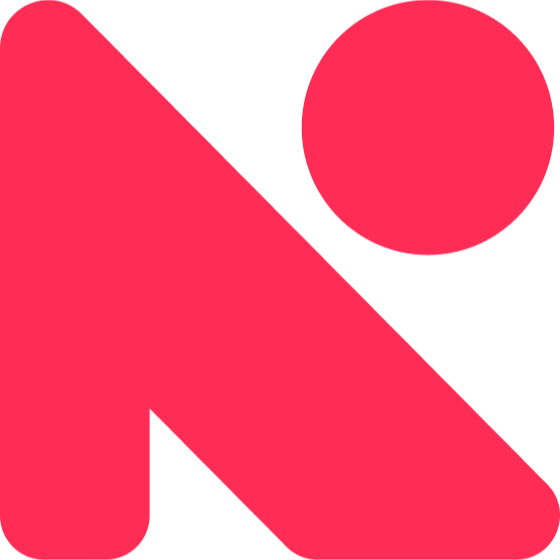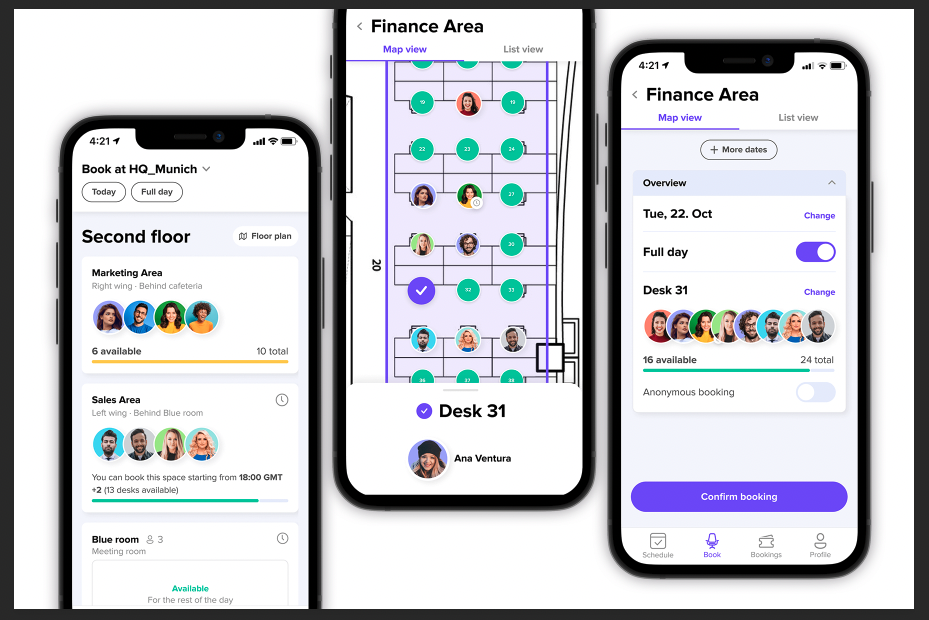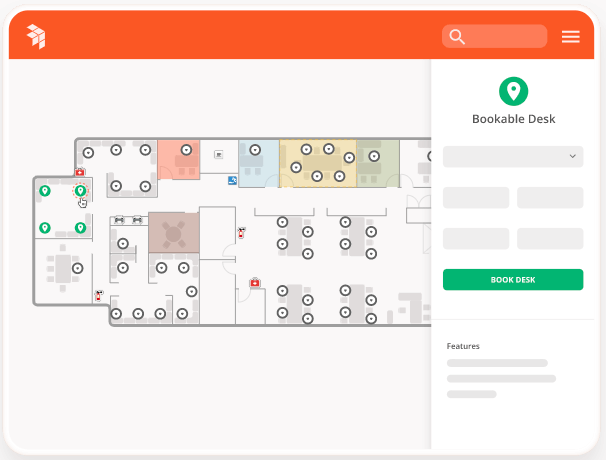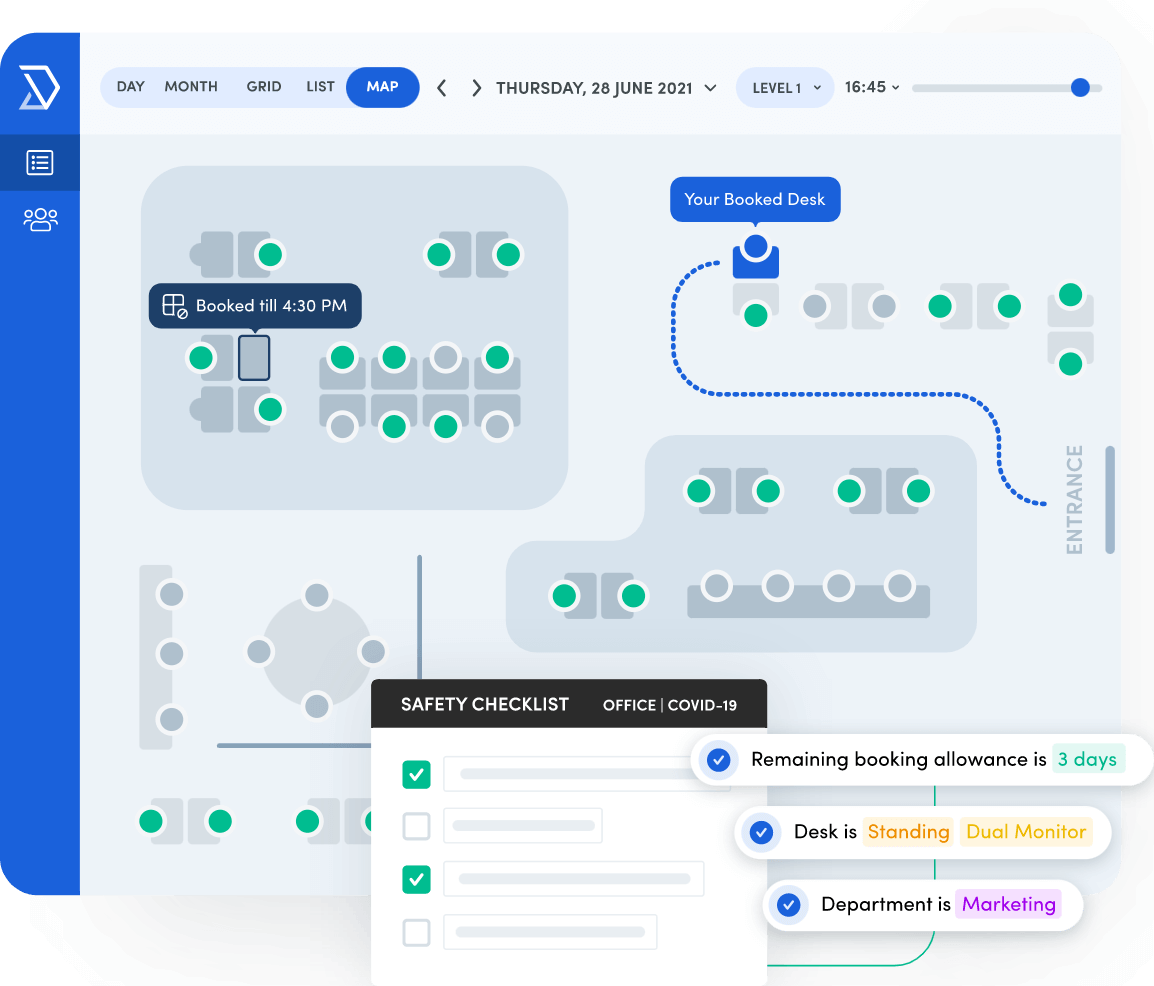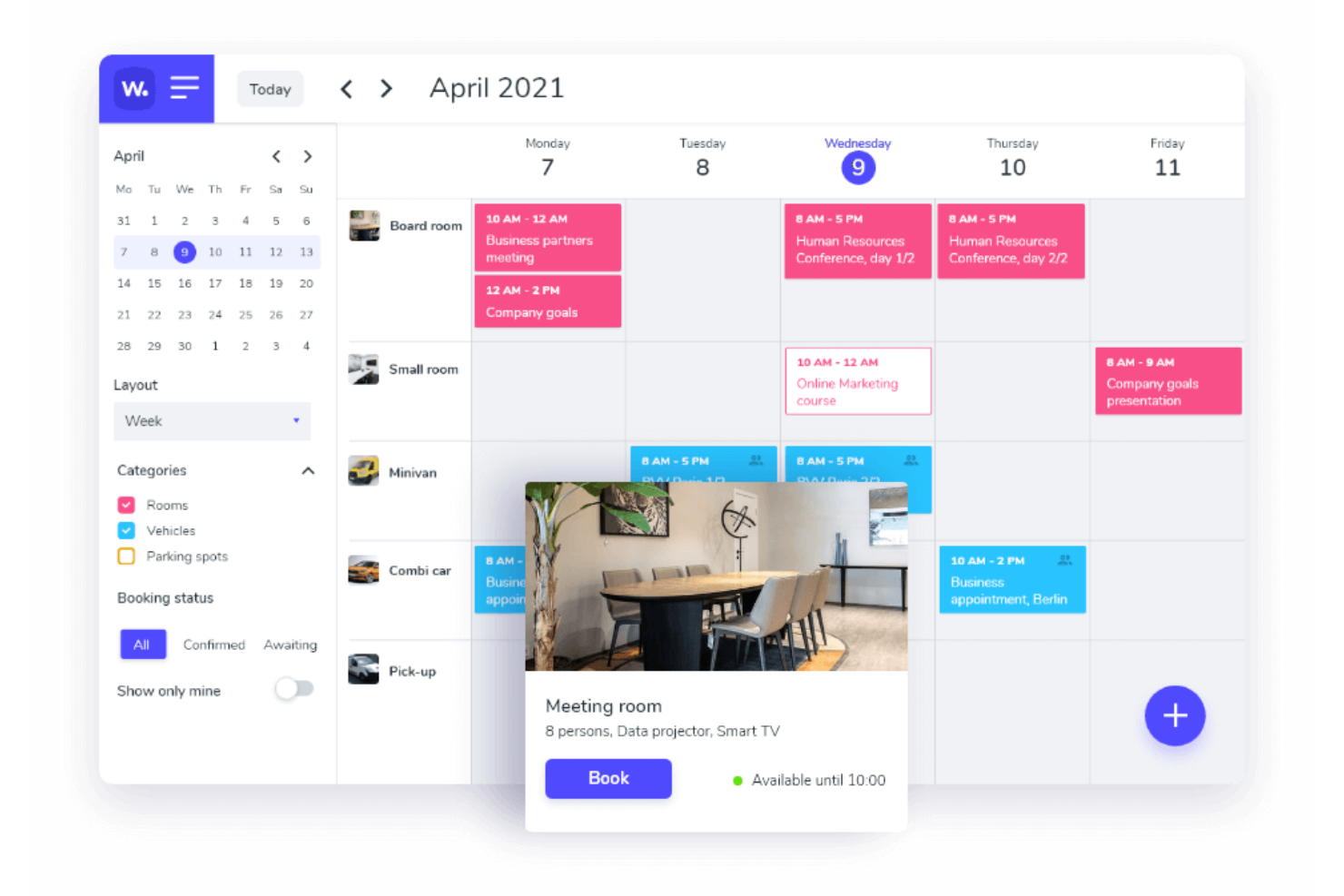20 Best Hot Desk Booking Software List
Here's my pick of the 20 best software from the 40 tools reviewed.
The best hot desk booking software helps HR teams eliminate the chaos of shared workspaces by making it easy for employees to reserve desks, meeting rooms, and resources—while giving you the visibility and control needed to manage a hybrid office efficiently.
If you're currently relying on spreadsheets, emails, or clunky tools to manage who sits where, you’ve likely run into overcrowded workstations, wasted space, double bookings, and frustrated employees. The right solution can automate desk reservations, show real-time availability, reduce scheduling conflicts, and empower your team to book their ideal space in just a few clicks.
These platforms also give you actionable insights into space usage, helping you make data-driven decisions about office layout, capacity planning, and resource allocation.
As someone who’s spent 3+ years researching and reviewing workplace software for People Managing People, I created this guide to help you quickly compare the top hot desk booking systems so you can find one that aligns with your team's needs, and finally take the guesswork out of hybrid workspace management.
You Can Trust Our Software Reviews
We've been testing and reviewing HR software since 2019. As HR professionals ourselves, we know how critical and difficult it is to make the right decision when selecting software.
We invest in deep research to help our audience make better software purchasing decisions. We've tested more than 2,000 tools for different HR use cases and written over 1,000 comprehensive software reviews. Learn how we stay transparent, and take a look at our software review methodology.
Best Hot Desk Booking Software: Comparison Chart
This comparison chart summarizes pricing, trial, and demo details for my top hot desk booking software selections to help you find the best software for your budget and business needs.
| Tool | Best For | Trial Info | Price | ||
|---|---|---|---|---|---|
| 1 | Best MS Teams and Outlook integration | 14-day free trial | From $1.80/user/month | Website | |
| 2 | Best for coordinating people and spaces | Free trial available | From $4/user/month | Website | |
| 3 | Best for advanced desk usage data | Free demo available | Pricing upon request | Website | |
| 4 | Best for a full workplace suite | Free demo available | From $2.25-$4/user/month | Website | |
| 5 | Best for interactive floor plans | 30-day free trial | From $99/month | Website | |
| 6 | Best all-in-one for office management | 14-day free trial | From $3/desk/month | Website | |
| 7 | Best for hybrid work schedules | Free trial available | From $109/month | Website | |
| 8 | Best for real-time occupancy insights | Free trial available | From $2/user/month | Website | |
| 9 | Best for resource reservation capability | Free demo available | Pricing upon request | Website | |
| 10 | Best for platform design | Free version available | From $4/seat/month | Website | |
| 11 | Best for simple desk booking | Free plan available | From $2.50/user/month | Website | |
| 12 | Best Google Workspace and Slack integration | Free trial for the first 10 users | From $1/user/month. | Website | |
| 13 | Best for quick setup and self-onboarding | Free plan + free trial available | From $1.90/user/month (billed annually) | Website | |
| 14 | Best for customized spaces across locations | Free demo available | From $3.33/user/month | Website | |
| 15 | Best for QR code desk booking | Free plan available | From $16/month | Website | |
| 16 | Best for virtual scheduling assistance | Free demo available | From $2.50/user/month | Website | |
| 17 | Best for employee productivity features | 14-day free trial | From $1,500/year for their Basic service level | Website | |
| 18 | Best for modular configuration | Free plan available | From $3/desk/month | Website | |
| 19 | Best for advanced wayfinding features | Free demo available | Pricing upon request | Website | |
| 20 | Best for flexible integrations | Free demo available | Pricing upon request | Website |
-

Kudoboard
Visit WebsiteThis is an aggregated rating for this tool including ratings from Crozdesk users and ratings from other sites.4.8 -

Native Teams
Visit WebsiteThis is an aggregated rating for this tool including ratings from Crozdesk users and ratings from other sites.4.9 -

Rippling
Visit WebsiteThis is an aggregated rating for this tool including ratings from Crozdesk users and ratings from other sites.4.8
Best Hot Desk Booking Software Reviews
Below are detailed descriptions of my top 10 hot desk booking software solution, including summaries of their key features and why I included them in this list. Any of these systems can help you optimize office space and create a productive, safe work environment. For even more options, check out the 30 additional systems listed below.
deskbird offers a highly intuitive and flexible solution for booking desks and other resources that can be easily accessed by your team members from anywhere. With just two clicks, you can easily reserve a space, whether it's a desk, meeting room, parking spot, or any other facility.
Why I picked deskbird: I included their system because I found their integrations helpful and easy to use. You can book using Microsoft Teams, Slack, their web platform, or their mobile app.
In addition, their software integrates with Outlook and Google calendars, so you can avoid scheduling conflicts and get real-time analytics.
deskbird Features and Integrations:
Features include office capacity settings, seating restrictions, and team zones. Platform administrators can keep track of space utilization data, assign specific zones to teams, and limit access to essential areas whenever necessary.
deskbird also offers health policy reviews before checking in, check-ins via QR codes, and incognito bookings if you want your trip to the office to stay anonymous.
In addition, deskbird offers a seamless HRIS integration that streamlines absence tracking and enhances data accuracy, providing users with optimized workforce and office analytics. Plus, a mobile app is available for both Android and iOS devices.
Integrations are available with numerous calendar programs, communication tools, and active directory systems. including BambooHR, Workday, Personio, Sage, Factorial, HiBob, Rippling, and SAP SuccessFactors.
Pricing for deskbird’s workspace booking tool starts at $1.80/user/month. They also offer a 14-day free trial with no credit card or other strings attached.
Kadence is a full suite of easy-to-use hybrid working software designed to improve the coordination of people, space and time to help your teams work smarter. Their next-generation operating system for hybrid working was designed to unleash the potential of people, powering a more positive way of working.
Why I picked Kadence: I included Kadence in this list due to several unique features, including an auto-release capability that eliminates no-shows and improves availability.
Another unique team collaboration function is their “Personal Kadence” profile feature that helps office managers and teams get a clear view of employee’s personal preferences.
The software can also generate a list of who’s booked to come into the office on any given day to help with efficient meeting coordination.
Kadence Features and Integrations:
Features include an intuitive user interface and interactive floor maps (web and mobile versions) to help your employees find and book available desks in seconds.
Their platform also includes analytics on desk bookings, occupancy, or wasted bookings, to help you get a better understanding of your office space utilization.
Integrations include Microsoft Teams, Slack, Outlook, Google Workspace, BambooHR, Gusto, Jump Cloud, Microsoft Azure, Okta, OneLogin, PingIdentity, Rippling, and many others.
Pricing for Kadence starts at $4/user/month. They also offer a free demo.
OfficeSpace’s software supports hot desking, desk hoteling, free addressing (sensor activated check-ins), activity-based working, and booking neighbourhoods to keep team members closer together.
Why I picked OfficeSpace: Their user-friendly system works from all manner of devices and supports bookings via mobile app, touchscreen kiosk, desktop computers, or even from within Slack or Microsoft Teams. To help limit surface sharing, a touchless check-in feature is also included in their mobile app too.
The platform’s data analytics also aim to help with future demand forecasting by giving administrators access to usage and adoption data in their Insights Hub.
Within the data dashboard you can identify seating preferences, track trends, and see which workstations go unused. This valuable data is intended to improve the flexibility of your hybrid workspace arrangements by optimizing how your desks are configured and used.
OfficeSpace Features and Integrations:
Features include a directory to find colleagues, wayfinding features, tags for customized workstations (e.g., dual monitors, ergo chairs, docking station, etc.), and tools for scenario planning to experiment with different layout changes.
To dive even deeper into your data, their portfolio reports combine your lease information with your usage data to form real estate reports that show you where your budget is going to waste, allowing you to address those issues head-on.
Integrations are available with 35+ commonly used applications including Active Directory, ADP, LDAP, OneLogin, Oracle, PeopleSoft,
Pricing details for OfficeSpace are not readily available, but a free demo can be requested via their website.
Eden’s HR and workplace experience software is modular by design, so you only have to pay for the products you need—making it an affordable option for businesses who want to maintain a flexible, hybrid workforce.
Why I picked Eden: Within their desk booking module, system administrators can limit which desks are available for booking, to ensure social distancing between workers.
Their system also supports office neighborhoods, allowing employees from the same department to book spots close to each other for improved collaboration. Plus, it tracks office space and desk usage metrics, making it easier for operations teams to analyze their usage and reduce wasted space.
Eden Features and Integrations:
Features include separate modules for desk booking, room scheduling, visitor management, COVID-19 team safety, deliveries, and internal ticketing, which can be used for IT support, HR requests, and more.
In addition to their desk and room booking modules, Eden also has an embedded ticketing system, which can be used for any type of employee service request, such as HR and People Operations requests, IT support, facilities needs, or document formatting requests.
Designed to act as a central hub for service requests, this module also includes analytics so teams can understand what type of support their employees need the most.
Integrations are available with Google Calendar, Slack, Microsoft Teams, common HRIS platforms like Gusto, Hibob, and BambooHR, and many other access control and single sign-on directory service applications.
Pricing for Eden is very transparent and modular, depending on the type of booking services you need. For their hot desk booking service, pricing starts at $2.25/desk/month, sold in sets of 25 desks.
Their room scheduling software can also be added for free for up to 10 rooms, and their COVID-19 safety features can also be added for free for 1 location up to 50 employees.
Skedda’s customized booking system allows you to control the allocation of all your corporate spaces including desks, meeting rooms, studios, labs, or anything else you want to make reservable.
Why I picked Skedda: Their system is designed to remove the hassle of manually managing hot desk spaces by automating the process and enabling self-service bookings. This means you only have to set up your bookable items and automated user rules and permissions once. After that, your staff will be able to help themselves.
To ensure easy access, Skedda also has full-featured native apps for Android and iOS devices that work for users, as well as owners and administrators.
Skedda Features and Integrations:
Features include desk booking in 3-clicks, check-in policy management, and space utilization analytics. Their floorplan maps are interactive, making it easy to view and make bookings directly from the map interface.
Included in the floor plan is a time-of-day range-slider, so users can determine exactly when their favourite spot will be available again.
Users can also make reservations through their booking calendar, which allows platform admins to review bookings using day, month, grid (all listings) or list (per hot desk space or user) views.
For pay-per-use venues, the platform also makes it easy to collect payments from users during their initial booking, which is saved for convenient reuse.
Integrations are available with commonly used calendar programs such as iCloud, Google Calendar, Microsoft Outlook (and Google Workspace and Microsoft 365 to generate meeting invites and video-conferencing links), and with communication tools like Microsoft Teams, Slack, Trello, Basecamp, Mailchimp, and many others.
Pricing for Skedda starts at $7 per month. A 30-day free trial of their premium version is available, as well as a free demo. They also have a freemium version with limited features for up to 5 bookable spaces.
Tactic’s workplace experience software makes the office a more valuable piece of your company's hybrid work plan. This flexible platform provides a variety of tools that help bring your team together on their own terms.
Why I picked Tactic: Their desk & meeting room booking software is designed to ensure a safe working environment for all. Their system includes optional health check-ins for office visitors, capacity management tools, and detailed analytics to support contract tracing as needed.
On top of all that, the system can also track the vaccination status of your workers—a modern requirement for certain industries.
And the safety features don't stop there. With Tactic's visitor management tools, you can provide guests with a delightful digital check-in process, allowing you to easily collect their information, photo, and necessary signatures.
Tactic puts a heavy emphasis on their user experience to eliminate common technology frustrations.
Tactic Features and Integrations:
Features include on-demand desk booking and meeting room reservations, helping team members plan their preferred hybrid work schedule at the beginning of each week.
Using the interactive office map, employees can see which days their team members will be in the office, allowing them to easily coordinate meetings and events, and facilitate in-person collaboration.
Other useful features include seating assignments, capacity limits, future booking limits, and a feature that allows administrators to require approval for booking certain desk types or locations to ensure proper use.
Integrations are available with many popular scheduling and communication apps, such as Slack, Google Calendar, Microsoft Outlook, and Zoom. All features are also available through their Android and iOS apps.
Pricing for Tactic starts at $2.50/desk/month. All plans include a 14-day free trial, no credit card required.
Archie is a desk booking software designed to simplify the management of flexible workspaces. It helps hybrid teams easily locate and reserve desks, facilitating collaboration and efficient use of office space. With both web and mobile applications, Archie supports on-the-go desk reservations.
Why I picked Archie: One thing I really like is Archie's interactive floor plans. These visual maps allow you to see available desks and their locations, making it easy to choose a workspace that suits your needs. This visual representation helps in quickly identifying and booking the right spot in the office.
Another useful aspect is the check-in process. Archie offers QR code scanning and virtual check-in options to confirm desk reservations upon arrival. This ensures that booked desks are utilized and helps in monitoring office attendance effectively.
Archie Features and Integrations:
Features include the ability to create specific zones within the office, known as neighborhoods, which can be assigned to particular teams or require special authorization. Users can see who of their colleagues will be at the office on a certain day, and at which desk they’ll be sitting, which makes it easier to manage hybrid work schedules.
In addition, Archie provides options for recurring bookings, allowing you to reserve desks on a daily, weekly, or monthly basis, which is convenient for consistent scheduling needs.
Archie also offers seat assignment capabilities, enabling the allocation of permanent desks to employees who need them.
Integrations include Outlook, Google Calendar, Slack, Microsoft Teams, Zoom, Office 365, QuickBooks, Xero, Stripe, GoCardless, Kisi, Salto, and Tapkey.
GemEx App is a customizable workplace experience platform designed to help teams manage and reserve shared office resources like desks, meeting rooms, and parking spaces.
Why I picked GemEx App: GemEx App stands out for its flexible hot desk booking capabilities. The app’s booking module allows users to filter desks by amenities, occupancy, or environmental factors like temperature and noise, using real-time data from IoT sensors. This helps your team find the right space for focused work or collaboration.
You can also set booking rules, such as priority access for certain teams or assigning permanent desks to specific employees.
In addition, the GemEx App automates office neighborhood creation, allowing you to tailor workspaces to fit your company culture and workflow. Its robust analytics tools also let you analyze trends and generate custom reports, making it easier to optimize space usage.
GemEx App Features and Integrations:
Features include a colleague-finder tool that lets you see where coworkers are sitting, making it easier to coordinate in-person meetings. The app also offers a feedback module, allowing employees to report issues or provide comments on workspaces, which can be geotagged for precise location tracking.
GemEx App even offers indoor navigation, helping employees and visitors easily locate resources and navigate the building.
Integrations include Microsoft 365, Google Workspace, Slack, Power BI, Tableau, Akenza, Dormakaba, Jira, Eurecam, Senion, PointGrab, and Vecos.
DeskFlex is a versatile software designed to enhance the management of desk and room bookings in hybrid workplaces. It provides a range of features that help you optimize office space and improve overall workplace efficiency.
Why I picked DeskFlex: The real-time occupancy tracking feature of DeskFlex is a standout for managing hot desks. You can easily check in and out, allowing you to see which desks are available in real time. This means you and your team can make quick decisions on where to work without wasting time.
In addition, the abandoned meeting protection feature ensures that booked spaces are used as intended, freeing up rooms that are not being utilized. This feature is beneficial for maintaining an organized and efficient workspace.
Another reason DeskFlex is a great pick is its resource reservation capability. You can book equipment and resources along with your desk, making it convenient for planning meetings or collaborative sessions.
The coworking software feature also supports managing shared workspaces, which is ideal if you're in an environment where different teams need to use the same space throughout the day.
DeskFlex Features and Integrations:
Features include the lobby kiosk, which provides interactive stations for visitor information and services, enhancing the visitor management process. The 3D floor maps allow you to visualize office layouts, making it easier to plan and navigate your workspace.
Additionally, the software offers analytics reporting, giving insights into space usage and helping you make data-driven decisions.
Integrations include Microsoft Outlook, Microsoft Exchange, Microsoft Office 365, Zapier, Okta, Space Management, Check-In and Check-Out, Desk Booking, Abandoned Meeting Protection, Status Board Display, Coworking Software, and Single Sign-On.
Othership provides a set of solutions for hybrid working policies that facilitate collaboration and connection. It offers desk booking, visitor management, and meeting room bookings with features for remote working and out-of-office statuses. Admins and HR can use this data to plan for future work needs.
Why I picked Othership: Othership is a product-led business built from the input of thousands of hybrid organizations of all sizes. Its Workplace Scheduler has an intuitive design that makes it easy to use. Additionally, the platform offers social media-style notifications to help manage office workspaces.
Othership promotes more desirable workplace interactions by using events such as new joiners and combining them with people's skills and places of work to help facilitate more use of shared desk space. The platform also offers rich data and analytics based on remote, hybrid, and in-office utilization patterns.
Othership Features and Integrations:
Features include the ability to set your own schedule and status in the office or anywhere else. Its social media-style notifications and prompts help promote more employee engagement.
Furthermore, the platform allows for event promotion, group creation, and setting your status to open for collaboration. You can even buy additional spaces or sell an empty space on Othership’s adjacent platform, Othership On Demand.
Integrations include all major office and HR applications, scheduling, and video conference software like Microsoft Office, Outlook, Teams, Entra, Gmail, Google Calendar, Slack, Zoom, and Bamboo.
Pricing for Othership begins at $4/seat/month with a free plan available.
Officely is a simple hot desk booking software that helps businesses manage meeting rooms, desks, and other shared spaces.
Their cloud-based solution allows users to see desk availability in real-time, book meeting rooms and desks, and track space usage. Your team to see who will be in the office, book alongside them, reserve a car parking space, and book a meeting room within Slack and MS Teams.
Why I picked Officely: Their software allows employees to reserve space for specific days or times and cancel reservations if they no longer need the space. Users can make individual or group bookings, and also reserve spaces and amenities like parking spots or rooms for private luncheons. Users will receive a confirmation email with all the details about their reservation, including a floor map for easy navigation.
The platform also facilitates collaboration by providing information about where everyone is working from at a glance, whether it's in the office, at home, traveling for work, at client’s offices, or on vacation.
To assist with workforce management, Officely allows employers to limit the time each employee can spend in the office, ensuring everyone can use the space. Moreover, Officely provides employers with data on how their employees use the office, allowing them to make informed decisions about office utilization and cutting costs in the right areas.
The system's overall flexibility helps make hybrid work arrangements more manageable for employers and employees.
Officely Features and Integrations:
Officely allows system administrators to customize their built-in health surveys, such as their automated COVID-19 or vaccine check-ins, which can be incorporated into the desk booking process. Once a health survey is completed, the results are automatically logged into a secure system. The platform also has Smart Office Day suggestions, which tell your employees the best days to come in.
Integrations are available natively with popular calendar programs like Google Calendar and Microsoft Outlook. In addition, Officely is fully integrated with Slack and MS Teams.
Pricing for Officely starts at $2.50/user/month. They also offer a freemium plan with limited features for up to 10 users too.
Deskfound is a Slack-based workspace management software tailored for a hybrid workforce. It allows employees to find the appropriate workspace, view floor plans, and book desk reservations from an easy-to-use, centralized platform or their existing Slack program.
Why I picked Deskfound: The cloud-based software enables supervisors to strategically assign desks to different employees, evaluate seating arrangements, and manage available workspace for a designated number of days or even weeks. It allows employees to manage work desks across multiple locations, view workspace status & availability, and schedule reservations for dedicated and temporary desks in offices.
Deskfound Features and Integrations:
Features include the ability to view desks by area, book permanent or hybrid seats, and update reservations by simply using the built-in drag-and-drop user interface. Users can use QR codes to scan desk labels and ensure the visibility of seating arrangements and locations.
In addition, the software enables users to easily track each team’s location, configure user access rights, set up the software’s contact tracing functionality, and manage other critical tasks within a unified system.
Integrations are available with Slack and other third-party applications, including Google Calendar, Google Maps, and Google SSO.
Pricing starts from $1.00/user/month. A free trial is available for the first 10 users.
Dibsido is a hot desk booking software and office management tool designed to simplify workspace reservations for hybrid teams. It provides a system for employees to book desks, meeting rooms, parking spaces, and shared cars, as well as tools to organize carpools.
Why I picked Dibsido: I picked Dibsido because it makes booking hot desks incredibly straightforward for any type of team setup. It supports flexible self-onboarding options in one quick click, allowing you to select desks based on specific attributes and manage reservations through a user-friendly interface.
You can use QR codes to easily track desk usage and get an overview of your office occupancy, which can help in reducing operational costs. The tool also supports hybrid work models by offering a scheduler for attendance and providing data on office utilization.
Dibsido also stood out for how much you can customize the desk booking experience. You can define unique booking rules for different user groups, control how far in advance someone can book, and restrict which desks are available to which teams. Admins can set up recurring bookings, apply permission levels based on departments, and manage several office locations from a single account.
Dibsido Features and Integrations:
Features, in addition to desk booking, include parking space booking to manage limited parking resources and ensure fair access for all employees, as well as company car reservations with a built-in logbook for tracking usage. Dibsido also supports carpooling arrangements, helping employees reduce commuting costs and minimize environmental impact.
Other unique features include a package register for logging deliveries and parcels, incident reports, and office notices, which can be used to communicate important information to all employees quickly and efficiently.
Dibsido also includes a hybrid scheduler, which allows employees to schedule their in-office and remote work, and a guestbook where guests can easily check in and provide necessary information on a tablet while the system automatically notifies their hosts.
Integrations include Google Calendar, Outlook, Slack, Microsoft Teams, and Entra ID.
Pricing starts from $1.90/user/month (billed annually). A free plan is available for up to 20 users and a free trial is available for premium plans.
Tribeloo is a hot desk booking software that offers an array of features to help you manage your workplace and support in-person and hybrid collaboration on your team.
Why I picked Tribeloo: This is an effective desk and workspace booking software that allows you to define 'neighborhoods' and other unique workspace divisions. You can also manage multiple locations and set specific booking rules for these different locations. For example, you can add maximum capacities for shared desk spaces or add access permissions to certain employees or teams.
The software provides a visual floor plan for employees to book desks and rooms through. It allows you to set up policies and safety screenings for employees to read and agree to when they book spaces. Employees can also add team members to their group to see who's in and out of the office, and add conferencing to meetings they're booking with hybrid attendees.
Tribeloo Features and Integrations:
Features include a visual floor plan, desk and room booking, assigned desks, multiple site management, custom areas and wings, special requests, pre-screening forms, and analytics and reporting tools.
Integrations include Google Calendar and Outlook Calendar, so your team can book desks and rooms directly from the platforms they use already.
Whatspot is a lightweight office booking platform designed for co-working hubs and flexible workspaces. It offers interactive floor plans, public booking pages, and mobile apps so teams can easily reserve desks, meeting rooms, or shared spaces—whether planning ahead or booking on the fly.
Why I picked Whatspot: I picked Whatspot because it’s a great fit for hybrid teams that need visibility and speed when reserving workspaces. Employees can book desks instantly using the mobile app or by scanning QR codes on-site, while admins can apply rules like quotas, approvals, or advance booking limits to keep things organized.
It’s also guest-friendly, with login-free booking pages that work well for co-working and community venues.
Whatspot Features and Integrations:
Features include interactive floor plans, mobile app access (iOS and Android), QR code check-ins, booking approvals, future booking limits, and user-level quotas. Employees can filter by desk type or availability and see open spaces on a live map—so they know where to sit before they walk in.
Admins can review usage by day, desk, or team, giving insight into how different parts of the office are being used.
Integrations are presently not listed by Whatspot.
WorkInSync is a hybrid workplace scheduling solution with all the standard features you’d expect for a hot desk booking application, and more.
Why I picked WorkInSync: The system helps managers stay on top of their hybrid employees by asking staff to fill out an Employee Preference Report once per week, indicating the days they would like to work from home or in the office.
When staff are ready to make a booking, they can browse the interactive booking platform to find seats near other team members, and search for workstations with special features, including cubicles with ergonomic chairs, or dual monitors.
Within the same process, employees can also book parking spaces too. On the day of a booking request, the system automatically sends a health risk assessment questionnaire to ensure employees have no cold or flu symptoms before heading to the office.
WorkInSync Features and Integrations:
The platform boasts several unique features that I haven’t seen in other systems. To improve productivity, their software has integrations with Google Assistant, Alexa, and Siri so employees can reserve desk spaces during their drive to the office. Once they arrive, the platform’s Mask Detector feature asks employees to confirm they’re wearing a face mask by uploading a selfie of them wearing it.
After that, the next step is a temperature check using WorkInSync’s digital thermal hand scanner, which checks and records employee temperatures to ensure no fevers are developing. QR code scans also work in tandem with their Contactless Access Management module and Digi-Pass, ensuring contactless check-in for booked desks or meeting spaces.
Integrations are available with Microsoft Teams, Slack, Google Assistant, Microsoft Outlook, G-Suite Calendars, Microsoft ADFS, Okta, One Login, Honeywell EBI, and Siri.
Pricing for WorkInSync starts at $2.50/user/month. A free plan is also available for organizations with less than 50 employees. A free demo can also be requested via their website.
Robin’s sophisticated desk booking system aims to empower employees, while giving management teams the tools they need to manage safety, security and space utilization effectively.
Why I picked Robin: Thanks to their real-time analytics, users always know how many desks are assigned, hot, hoteled or flexible at any given moment. Bookings can also be made easily through their mobile app, desktop interface, or through kiosks placed at strategic locations around your office, like meeting rooms.
Robin Features and Integrations:
Their system includes useful functions to improve employee productivity, such as wayfinding features, and platform searchability, enabling employees to find co-workers quickly, rather than wasting time walking around.
For meeting room scheduling, Robin has space utilization features to ensure a meeting room intended for up to 10 people isn’t booked by groups or 2 or 3. Check-in features also remove ghost meetings, meaning a room booking will be released if no one checks-in for the meeting within a set amount of time.
Integrations are available with Microsoft Office 365, BlueJeans, Exchange, Google Calendar, Slack, and Zoom.
Pricing for Robin starts at $1,500/year for their Basic service level. A free 14-day trial and free demo can also be requested via their website.
Envoy’s hot desk booking system makes it easy to manage the desk booking process from end-to-end.
Why I picked Envoy: Facility managers can control which spaces are bookable, permanently assigned, or unavailable to facilitate social distancing. Interactive workspace maps and neighborhood features are also included. Employees can reserve spaces through Envoy’s mobile app or web interface, or seat assignments can roll out automatically depending on each employee’s function or project team.
Envoy Features and Integrations:
Analytics are built right into the system to ensure space optimization. They also have a feature called ‘unused desk protection’ which allows employees to free up their desk space if they no longer need it so space is never wasted.
For employees using the hot desking feature, the system will ask them to complete a health questionnaire before allowing them to make a booking. For longer-term arrangements, employees can reserve the same desk for multiple days or weeks in advance, or request a permanent desk assignment.
In addition to their desk booking features, Envoy also has separate modules for visitor management, managing office deliveries, booking meeting rooms, and protective safety measures for staff.
Integrations are available with 85+ common software applications including access control platforms like braXos, Genetec, Honeywell and Proxy, and communication platforms like Cisco Webex, CXApp, Google Chat, Microsoft Teams, Ring Central, Workplace by Facebook, Zoom and many others.
Pricing for Envoy Desks starts at $3/desk/month, sold in packs of 25 desks. A freemium version with limited features is also available for up to 25 active desks.
Used in over 85 countries by 10,000+ organizations, SpaceIQ has three distinct workplace efficiency tools that address space management and space accounting:
- SiQ - a streamlined workplace management and hoteling software for companies of any size that want to get started quickly
- Archibus - an integrated workplace management system (IWMS) that organizes spaces, assets, and facilities, which can be customized or run out-of-the-box
- Serraview - an enterprise-level workplace management system for desk hoteling, with detailed analytics for companies with complex structures or needs
Why I picked SpaceIQ: All combined, their products offer a full range of agile workplace functions like hot desking, hoteling, desk neighbourhoods, ratio seating, space inventory and layouts, workplace occupancy and vacancy management tools, and the ability to host plans for multiple office spaces easily.
Their systems also help operations teams plan for new staff and relocate equipment easily with intuitive suggestions, next steps, and notifications. Accounting teams will also appreciate the platform’s ability to allocate the cost of team spaces either by square footage or personnel.
SpaceIQ Features and Integrations:
SpaceIQ also has a Wayfinder Portal that makes it easy for staff to orient themselves in the space using interactive, easy-to-read maps with color-coding and distinctive shapes. Photos of workspaces can also be uploaded to help users visually confirm they are in the right spot.
Their maps also identify the locations of useful items like printers, washrooms, cafeterias, stairs, first aid stations, sanitizing equipment, and anything else worth flagging.
Integrations are available with Google Drive, Namely, PeopleHR, Slack, Losant, and with common calendar programs like Google Calendar, Microsoft Exchange Calendar, and Office 365 Calendar. Their system also supports single sign-on, secure file transfer protocol (SFTP) data transfers, and other customizations through their open API.
Pricing details for SpaceIQ products are not readily available, but a free demo can be requested via their website.
Smartway2 is an intelligent workplace scheduling tool that makes hybrid working effortless. Users can book everything from hot desks, conference rooms, parking spots, or other equipment to enhance their productivity while venturing back to the office.
Why I picked Smartway2: Their mobile “book here and now” feature supports bookings on the fly, or users can book in advance using their calendar feature on mobile or on desktop. As well, their Outlook integration allows you to book a room through your Outlook Calendar, while simultaneously checking whether your colleagues will be in the office and what their availability is for an in-person meeting.
Smartway2 Features and Integrations:
Modern hybrid work challenges are well-integrated into Smartway2’s workplace scheduling tool. Their powerful rules engine behind their hot desk booking solution can be easily configured to allow for social distancing between booked spaces, manage how many occupants can book spaces at the same time, and incorporates time for sanitation services in-between hot desk bookings if required. It also allows for localization of hybrid working policies, which is particularly useful for large muti-nationals with offices in multiple countries hosting thousands of employees.
Another useful feature is their Smart Desk Recovery tool, which scours the systems for any no-shows and releases unused bookings, increasing desk availability for employees and facilitating a better use of space in the office. Room panels can also be installed in meeting rooms or other common spaces so people can quickly make a booking, or check-in for an existing meeting using swipe cards, mobile device activation, or facial recognition.
Integrations are available with Microsoft Exchange and Microsoft Outlook, as well as Office 365.
Pricing details for Smartway2's hot desk booking solution are only available upon request. A free demo can also be requested via their website.
Other Hot Desk Booking Software
Here are a few more worthwhile options that didn’t make it into my top 10 shortlist for the best hot desk booking software, but they're still worth checking out:
- FLYDESK
For weekly schedules
- Clearooms
User friendly remote booking system
- Zynq
For hybrid teams
- Condeco
For flexible desk workflows
- Cloudbooking
For workspace planning
- Ronspot
For an interactive booking map
- HotDesk+
Multilingual hot desk booking software
- Floor Plan Mapper
For no limits on desk or users
- YAROOMS
For digital signage & visitor management solutions
- SwipedOn
For ease of use desk booking and full hybrid workplace management
- Meetio
For QR code check-ins and a find-a-colleague feature
- Teem
For desk hoteling software with sanitation flags between users
- Gaia Workspace
For advanced employee screening
- EMS
For integrated video conferencing and customizations for academic venues
- MRI Workplace Central
For reducing cost through optimal space utilization
- Smart Space
For occupancy sensors, and advanced desk utilization metrics
- SmartenSpaces
For amenity bookings and employee engagement features
- FlexO by Oomnis
For booking huddle spaces, parking spaces, and mobile equipment
- Fischer & Kerrn
For monitoring desk usage via smart desk sensors, occupancy sensors, and ID card readers
- Flowscape Solutions
For booking spaces with specialized equipment
Related HR Software Reviews
If you still haven't found what you're looking for here, check out these other related tools that we've tested and evaluated:
- HR Software
- Payroll Software
- Recruiting Software
- Employer of Record Services
- Applicant Tracking Systems
- Workforce Management Software
Selection Criteria for Hot Desk Booking Software
Selecting the right hot desk booking software requires an understanding of how each functionality supports common organizational needs. My approach to choosing the best hot desk booking software is grounded in thorough research to pinpoint the features that add a lot of value for administrators and employees alike.
Here are the details I evaluated to decide on my final picks:
Core Hot Desk Booking Software Functionalities (25% of total score): To be considered for inclusion in my list of the top desk booking software, each solution had to offer the following basic functionalities first:
- Digital tools to manage desk reservations, plus other bookings for meeting rooms and other workspaces
- Tools to customize your booking policies for your business needs
- Mobile app functionality to enable bookings via mobile devices
- Detailed usage analytics for space optimization purposes
- Real-time updates and notifications to gauge desk availability
- Software integrations with digital calendars and communication tools
Additional Standout Features (25% of total score): To help me narrow in on the best hot desk booking software out of the numerous options available, I also took note of any unique features, including:
- AI-driven suggestions for optimizing space utilization
- Advanced health and safety monitoring and compliance tools
- Tools to set up team zones, neighborhoods, or other space booking restrictions to strengthen team cohesion when physically in the office
- Interactive maps with wayfinding features for complex workspaces
- The ability to manage multiple office spaces within one platform
- E-commerce features that allow you to offer workspaces for rent
- Advanced physical hardware like digital signage and scannable QR codes that help users check in at physical spaces
Usability (10% of total score): To evaluate the usability of each hot desk booking system, I considered the following:
- An intuitive design that simplifies the booking process, including on mobile devices (both Android and iOS mobile devices)
- A clean, user-friendly interface with features to make bookings using interactive office maps or through drag-and-drop functionality
- Role-based access control that's straightforward to configure
Onboarding (10% of total score): To get a sense of each software provider's customer onboarding process, I considered the following factors:
- Quick setup processes and clear configuration guidelines
- The availability of training materials such as videos or interactive tutorials
- Support for migrating employee data into the new platform
Customer Support (10% of total score): To evaluate the level of customer support each vendor offered, I considered the following:
- The availability of multiple support channels, including email, phone, and chat
- The existence of a self-service knowledge base or other self-help resources to speed up troubleshooting
- The overall quality, responsiveness, and helpfulness of the support team during customer onboarding and post-purchase, as inferred from customer reviews
Value for Price (10% of total score): To gauge the value of each software, I considered the following factors:
- The availability of free trials or demos to test the software before purchasing
- Transparent pricing models that clearly explain which features are included at each level
- Tiered pricing plans that cater to different business sizes, from small to medium-sized businesses (SMBs) up to enterprise-level organizations
- Competitive pricing models that offer volume-based discounts for large-scale workspaces
Customer Reviews (10% of total score): Evaluating customer reviews is the final element of my selection process, which helps me understand how well a product performs in the hands of real users. Here are the factors I considered:
- Whether a product has consistently high ratings across multiple review platforms, indicating a broad level of user satisfaction
- Specific praises, criticisms, or trends in customer feedback that indicate the software's strengths or areas for improvement
- Whether customer feedback specifically mentions issues with ease of use, customer support responsiveness, or lacking features
Using this assessment framework helped me identify the hot desk booking software that goes beyond basic requirements to offer additional value through unique features, intuitive usability, smooth onboarding, effective support, and overall value for price.
How to Choose Hot Desk Booking Software
Hot desk booking software can help you manage your office space more effectively, providing a smoother and better experience for your hybrid employees. To help you figure out which hot desk booking software best fits your needs, keep the following points in mind:
- What hybrid office challenges are you trying to solve?
By identifying the challenges you're trying to overcome, you can align your needs with the specific software features and functionalities that will address them. These challenges may include:- understanding whether your office space is being under-used,
- reducing the size of your floor plan based on real usage data,
- encouraging your employees to return to the office more frequently,
- improving your hybrid team's experience coming to the office, and
- making it easier for teams to coordinate their in-office days with other team members.
- What outcomes are important and how will you measure success?
Being clear on your desired outcomes upfront is crucial to avoid wasting valuable time. Key outcomes you may want to measure include:- The rate that your hybrid employees return to the office (hopefully more frequently),
- Improved use of your floor space so you can reduce unused physical space or offer desk space for rent, or
- An improved employee experience, captured via surveys or eNPS ratings, etc.
- Who are your main users? Determine how many licenses you'll need and which groups require access, such as your entire workforce, HR admins, and support staff. Prioritize the needs of different user groups—admins, managers, and employees—to ensure the software meets everyone's requirements.
- Your main user groups will likely be your office administrative staff, HR administrative staff, managers, team leads, and employees.
- What is your budget?
To evaluate cost, do a headcount of your existing workforce and a full tally of your desks and other bookable spaces. Since most hot desking solutions charge a fee per desk or per user, this will help you estimate your monthly costs proactively.- It's crucial to determine a realistic budget for your new software up-front, so you don't waste time considering software that's out of your price range.
- Do you require specific software integrations?
Clarify whether your new software will replace any existing tools or need to integrate with them.- Key integrations to look for include digital calendars, internal communication tools like Slack or Microsoft Teams, and your HR management system.
- Does the new hot desk booking system satisfy your technical requirements? Consider the software selection alongside your existing workflows and systems. Evaluate what's working well, and any problem areas that need to be addressed.
- Does the new system integrate with your corporate workspace (Microsoft SharePoint, Google Workspace, etc.)?
- Does the new system offer security features that meet your needs (e.g., two-factor authentication (2FA), etc.)?
- Does the software offer a complimentary desk booking app as well as desktop-based tools?
Remember, every business is different — don’t assume that a hot desk booking system will work for your organization just because it's popular.
Companies need to reimagine how they use office space in a hybrid world… Office space should be more about collaboration and less about sitting at desks all day, especially when many people are working from home. Instead of assigning desks, think about creating collaborative spaces that employees can use when they come in for specific projects or team meetings.
Trends in Hot Desk Booking Software for 2025
Hot desk booking software saw a sharp rise in popularity during the pandemic, to match the needs of growing hybrid workforces. Even today, these products continue to evolve to meet the changing needs of hybrid office environments and to leverage new technological advancements, such as artificial intelligence (AI).
Here's a summary of the current trends impacting the hot desk booking software space:
- Advanced Real Estate and Workplace Utilization Analytics: To help businesses manage their physical resources more strategically, developers are embedding complex analytics for desk allocation and real estate optimization. This innovation supports data-driven decisions, helping businesses maximize space efficiency and either reduce operational costs or monetize unused spaces.
- Package Delivery Management and Visitor Management Systems: The introduction of package tracking and sophisticated visitor management features represents a move towards comprehensive workplace solutions. This evolution is driven by the need for seamless operation within the modern office, ensuring security, efficiency, and convenience in handling visitors and deliveries.
(To learn more about how these features work, take a look at our in-depth review of Envoy, which explains it in more detail.) - QR Code Check-ins and Digital Signage: To streamline office navigation and improve visitor management, QR code check-ins and digital signage are being introduced. This approach simplifies access control and enhances the visitor experience, responding to the need for efficient and secure workplace management.
- Smart Desk Sensors and Occupancy Analytics: Leveraging technology for real-time space management, smart sensors and analytics are utilized to monitor desk usage. This trend is motivated by the desire to optimize workspace utilization, ensuring resources are effectively allocated and reducing wastage.
As flexible work arrangements remain popular, these technologies are essential for supporting hybrid office needs. By using hot desk booking software with advanced analytics, integrated office management features, and physical hardware connections, you can boost workplace efficiency.
Recalibrating the workplace to meet the realities of hybrid work means that more companies are embracing desk sharing. In 2024, only 40% of companies report having an employee-to-desk ratio of 1.0:1 or less—down from 56% last year. That number is expected to drop to just one-third of respondents over the next two years, as 1.0:1 seat planning continues to lose favorability among occupiers planning for hybrid work.
What is Hot Desk Booking Software?
Hot desk booking software is a workplace management tool that lets employees reserve shared desks and workspaces in advance.
It helps businesses manage flexible seating in hybrid offices, reduce space conflicts, and track desk usage in real time.
This type of software is commonly used by HR teams, office managers, and operations leaders to eliminate booking chaos, support flexible work, and improve space utilization across modern office environments.
It’s important for hybrid teams to have dedicated time for collaboration and focus. You can set up team check-ins at the beginning of the week and use tools to block out focus time for individual work.
Features of Hot Desk Booking Software
These are the key features I assessed when creating this list of the best hot desk booking software:
- Self-Service Bookings: The ability for employees to make bookings themselves, rather than bottlenecking requests through administrators or managers.
- Flexible Booking Options: The best platforms offer flexible workspace types (e.g., for desks, conference rooms, kiosks, parking stalls, and equipment) as well as flexible room scheduling and booking arrangements (e.g., hourly, all-day, multiple days, etc.) to accommodate a range of business needs.
- Detail-rich Floor Plans: Users should be able to visually locate the workspace they want to book from an accurate, and often interactive map. Some platforms even include wayfinding features that help users orient themselves within the workspace.
- Mobile Device Compatibility: This is an essential feature, as it allows users to book from anywhere, anytime, while also enabling touchless check-ins via mobile devices. When considering this feature, ensure mobile device compatibility exists for both Android and iOS mobile devices.
- Team Zones or Neighborhoods: This feature creates designated areas for specific teams or departments, ensuring better team collaboration while in the office. This feature is also useful for creating designated quiet zones.
- Search Tools to Find Colleagues: To further enhance productivity and collaboration, hot desk booking systems allow users to search for other employees to find out when they’re going to be in the office, and where they’ll be sitting.
- Visitor Management: This feature allows offices to streamline the check-in process for guests, ensuring that only authorized individuals enter the workspace. It adds an extra layer of security and helps maintain a safe and organized environment for employees and visitors alike.
- Health & Safety Features: This covers built-in health screening questionnaires, occupancy limits, social distancing parameters, data to assist with contact tracing, and automations that flag desks for sanitization in between users.
- Usage Metrics: The best systems keep track of usage data to support higher-level workspace analysis processes. This helps you quantify the cost of unused space so you can make informed decisions to further optimize your floor plan or reduce floor space altogether.
- User Permissions & Access Controls: Many tools let you set custom access permissions for different team members to manage who can access specific areas or desks within the office. This helps keep specialized or authorized areas bookable only for those with designated access and assists with ensuring compliance and workplace safety.
- Software Integrations: Integrations with commonly used office programs like Outlook, Gmail, Slack, Microsoft Teams, digital calendars, and other cloud-based simplify the booking process and help your hybrid workers avoid scheduling conflicts.
Implementing hot desk booking software with these features can significantly enhance the management and reservation of desk spaces in a hybrid office environment.
Benefits of Hot Desk Booking Software
Hot desk booking software offers a sophisticated approach to modernizing your hybrid work practices and creating a smoother employee experience for staff who want the flexibility of varying their work location according to their preferences.
By implementing hot desk booking software, you can expect to gain the following benefits:
- Increased Flexibility and Autonomy: Ultimately, by giving employees the ability to choose when and where they'll be in the office, hot desk booking software empowers team members to be more autonomous and in control of their work experience. This, in turn, can lead to improved job satisfaction and productivity.
- Enhanced Space Utilization: By analyzing usage patterns, businesses can adjust their real estate needs accordingly, ensuring that no space goes to waste and potentially lowering expenses related to unused areas.
- Improved Collaboration: By allowing users to book desks and meeting spaces based on team location, hot desk booking software can enhance collaboration, fostering a more cohesive and dynamic work environment.
- Better Data-Driven Insights: Organizations can leverage workspace usage data to make informed decisions about office layout, required resources, and future workplace strategies, aligning them more closely with actual needs.
- Health and Safety Compliance: Providing a safe environment is always a top priority for employers and hot desk booking software can simplify this process by helping teams manage social distancing, track cleaning schedules, and ensure that health protocols are followed. These features both assist with health and safety compliance tracking and provide peace of mind for both employees and management.
These benefits demonstrate the significant impact hot desk booking software can have on an organization's operational efficiency, employee satisfaction, and strategic planning. By prioritizing flexibility, insight, and safety, businesses can create a more adaptive and resilient office environment.
Costs & Pricing for Hot Desk Booking Software
Pricing for hot desk booking software varies depending on the depth of features provided. While some systems offer a monthly price per user, others base their pricing on the number of bookable desk spaces you wish to manage, including some that offer packages or sets of bookable spaces for a flat fee.
To help you understand the pricing landscape, I've compiled the average price ranges for each plan level into a comparison table.
Plan Comparison Table for Hot Desk Booking Software
| Plan Type | Average Price per User | Average Price per Desk | Common Features Included |
|---|---|---|---|
| Free | $0 | $0 | Basic desk booking, mobile access, and real-time availability |
| Basic | $10 - $20 | $5 - $10 | Enhanced booking capabilities, integration with calendar applications, automated reminders, and basic analytics |
| Professional | $20 - $40 | $10 - $20 | Advanced analytics, customizable booking rules, integration with additional office management tools, and support for multiple office locations |
| Enterprise | Custom Pricing | Custom Pricing | Personalized setup and support, advanced security features, comprehensive analytics and reporting, API access, and a dedicated account manager |
When considering which plan to choose, I recommend weighing your specific needs and the features you want to gain against the expected costs for each tier. It's important to select a plan that fits your current requirements while retaining the flexibility to scale as your business grows.
If you have a small number of users and simple space management needs, you can likely get started with a free or basic plan initially. However, there are many reasons why you may want to opt for a more advanced plan, including:
- Growth in Workforce: As your team expands, you may reach the user limit for what a free or basic plan allows. Advanced plans can accommodate larger numbers of employees while also offering more advanced features.
- Increased Office Locations: If your business is poised to open a new office, you'll likely need to upgrade your plan to gain the ability to manage hot desk bookings in a second location.
- Enhanced Reporting Needs: Basic plans often lack in-depth reporting and analytics capabilities. By upgrading to a higher-priced plan, you'll gain advanced analytics to help you optimize your space utilization and uncover user trends.
- Integration with Other Tools: To ensure smooth operations, integrating with HR, project management, and calendar systems is essential. Higher-tier plans typically support a broader range of integrations than any free or basic plans.
- Customization and Flexibility: Basic plans usually don't support any customizations. However, advanced plans allow you to tailor the software to fit your unique workflows, booking rules, operational policies, and corporate branding.
Ultimately, it's important to secure a plan that offers the features you require to satisfy your current needs and solve your challenges without exceeding your budget.
Hot Desk Booking Software: FAQs
Do you have general questions about hot desk booking software and how it works? You’ve come to the right place! Here are some answers to commonly asked questions I’ve received on this topic:
What's the difference between hot desking and hoteling?
Hot desking lets employees choose any available desk on a first-come, first-served basis, while hoteling requires them to book a desk in advance. If you want more control and visibility, hoteling offers structured reservations, which can help with planning and team coordination. Many hot desk booking tools support both options so you can switch between them as your office needs change.
How does hot desking software reduce costs from underused office space?
Hot desk booking software tracks workspace usage and highlights underused desks and areas. This helps identify opportunities to downsize, repurpose space, or improve layouts. By using real-time data, you can cut unnecessary costs on rent, utilities, and overhead, making your office footprint better match actual demand.
Furthermore, by identifying underused areas, some companies may be able to offer spaces for rent to external users, creating a new revenue stream.
What are some tips for introducing hot desking?
To roll out hot desking successfully, start with clear policies that outline booking rules and desk etiquette. Provide training so staff know how to use the booking system. Offer storage or lockers for personal items. Make sure cleaning supplies are available at each desk, and designate zones for teams that collaborate often. Choose a booking tool that integrates smoothly with your existing platforms for a seamless transition.
Can hot desk booking software support multiple office locations?
Yes, most hot desk booking platforms let you manage bookings for several locations from a single dashboard. This means you can balance occupancy, enforce location-specific rules, and give staff flexibility to book desks at any office they visit, all while keeping oversight for facilities management.
Being able to manage multiple office locations helps create a smoother experience for employees who travel between sites or work remotely part of the time. It also streamlines operations and enhances workspace utilization across all your locations, making it easier to manage a dynamic and flexible working environment.
How does hot desk booking software ensure compliance with health and safety regulations?
Hot desk software can block off desks to enforce spacing, set occupancy limits for each area, and track who sits where each day for contact tracing. Some systems prompt users to complete a health checklist before booking. This helps you maintain compliance, manage density, and quickly respond if an incident occurs. These features support a smooth and safe return to work, and show staff that you care about their personal wellbeing.
What access control features do hot desk booking solutions offer?
Hot desk tools let you set who can book certain desks or zones based on roles or departments. Admins can restrict bookings to certain hours or locations and view audit trails of desk use. Many solutions integrate with systems like Active Directory or your building’s access control, so permissions are managed automatically. Other access control features include time-based restrictions for booking hours or days, and audit trails.
How do I manage visitor or contractor access with hot desk booking software?
Many booking systems let you create guest or visitor profiles and pre-approve access. You can assign desks or meeting spaces for visitors and track their bookings. Some platforms also integrate with visitor management and security systems to streamline check-in and badge printing, so guests only access approved areas.
What reporting or analytics features should I look for in hot desk booking tools?
Look for tools that provide real-time dashboards, space utilization rates, historical trends, and peak usage times. These analytics help you make data-driven decisions on reducing unused space, adjusting cleaning schedules, and planning future office layouts. Export options and integration with BI platforms are also useful for regular reporting.
Is it possible to enforce social distancing or desk spacing rules with hot desk software?
Yes, most hot desk solutions let you set spacing rules by blocking out desks to keep people apart. You can adjust layouts quickly if guidelines change and ensure only approved desks can be booked. This keeps your office safe and compliant with health requirements.
How can hot desk booking software support team neighborhoods to improve collaboration?
Hot desk booking software lets you set up team neighborhoods by assigning specific seating zones for departments or project teams. You can limit booking access so only team members reserve desks within their designated areas.
This approach makes it easier for colleagues to work near each other, supports ad hoc discussions, and strengthens collaboration on shared projects. With real-time maps and automated zone management, it’s simple to adapt layouts as teams grow or priorities shift.
What other names is hot desk booking software known by?
Hot desk booking software is often called desk hoteling software, office space management software, workspace reservation systems, or desk scheduling tools. Some platforms also market themselves as meeting room booking software or office scheduling solutions, especially if they manage both desks and shared rooms. If you’re searching for software, look for these related terms to find tools with desk booking features that fit your needs.
Tips for Selecting the Best Desk Booking Software for You
Feeling overwhelmed by all the options above? I'm happy to give you some tips. Finding the best hot desk booking system for you does take a little bit of research, but that's why I've created this list for you.
Here are 10 tips to help you hone in on the best desk booking software for you:
- Choose software with a user-friendly interface to ensure it's easy for all your users to make desk bookings.
- Look for a system that offers flexible booking options, such as daily, weekly, or monthly reservations, to give your organization more flexibility.
- Ensure the system you pick works on mobile devices, including Android, Windows, and iOS devices, for your employees' ease of use.
- Consider whether each system integrates seamlessly with other cloud-based applications your company is already using, such as Google Workspace or Microsoft 365. (If native integrations are not available, an API is also useful.)
- Review how quickly the system stores and updates data in real-time, to avoid booking frustrations by your staff.
- Dig into what type of usage analytics are included, if you have advanced space management or optimization needs.
- Find out if the system can be customized to your organization's unique needs, or if it's a one-size-fits-all software structure.
- Review the data security and privacy safeguards for your employee data to make sure they are compliant in your local jurisdiction.
- Find out whether the software is scalable if the needs of your organization grow. For example, how easy is it to add more coworking spaces to your desk booking system if you need to?
- Evaluate the cost of each desk booking system you're considering to make sure it aligns with your budget. Remember to factor in the number of users you may have in the future if your organization expands.
Other Workforce Management Software Reviews
While the hot desking trend certainly isn't going away, there are other types of software that can help you optimize your workforce management practices even more. To save you hours of digging around, take a look at these other specialty software lists instead:
- Office Space Management Systems
- Office Management Software
- Employee Scheduling Software
- Productivity Tracking Software
- Remote Working Software
- Time Tracking Apps
- Team Communication Apps
- HR Analytics Software
- Workforce Planning Software
- Remote Collaboration Software
- Remote Employee Monitoring Software
Depending on the challenges you're facing, I'm sure these lists have solutions to offer.
Stay in Touch
I hope this article highlighted the value of using hot desk booking software to streamline desk space management in your workspace.
Before you go, I’d love it if you'd subscribe to our People Managing People newsletter. By subscribing, you’ll gain access to the latest articles covering a whole range of workforce management-related topics.




